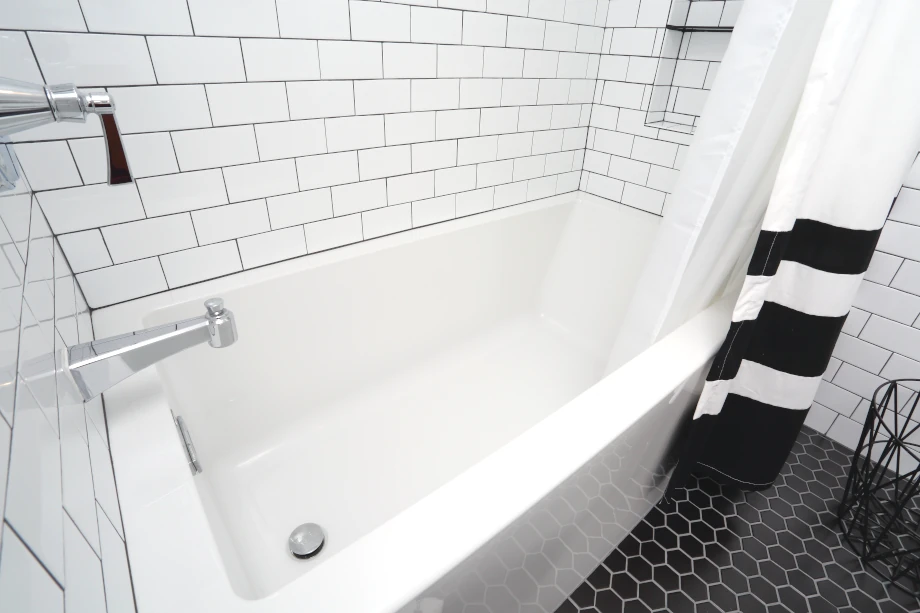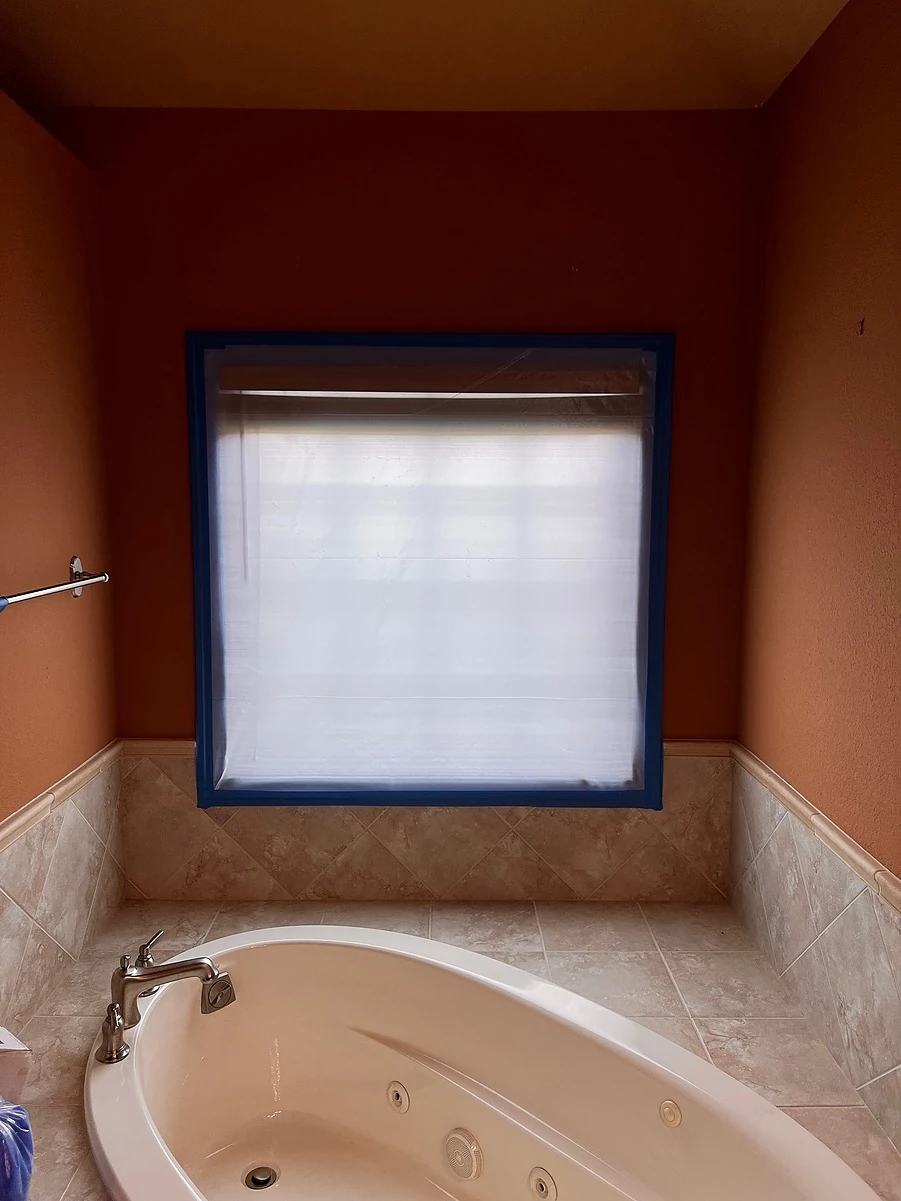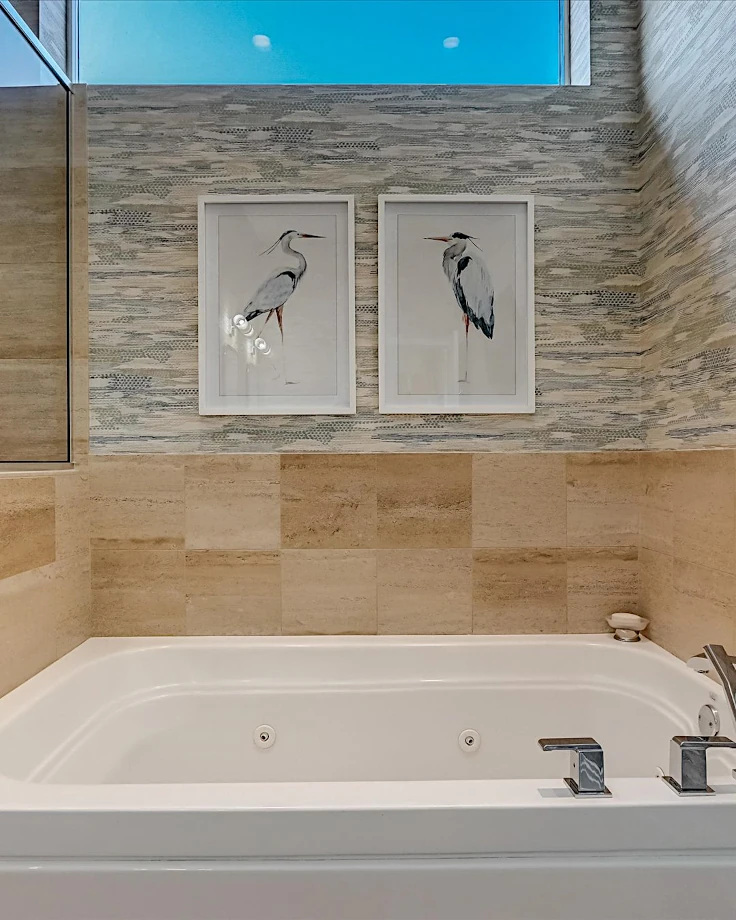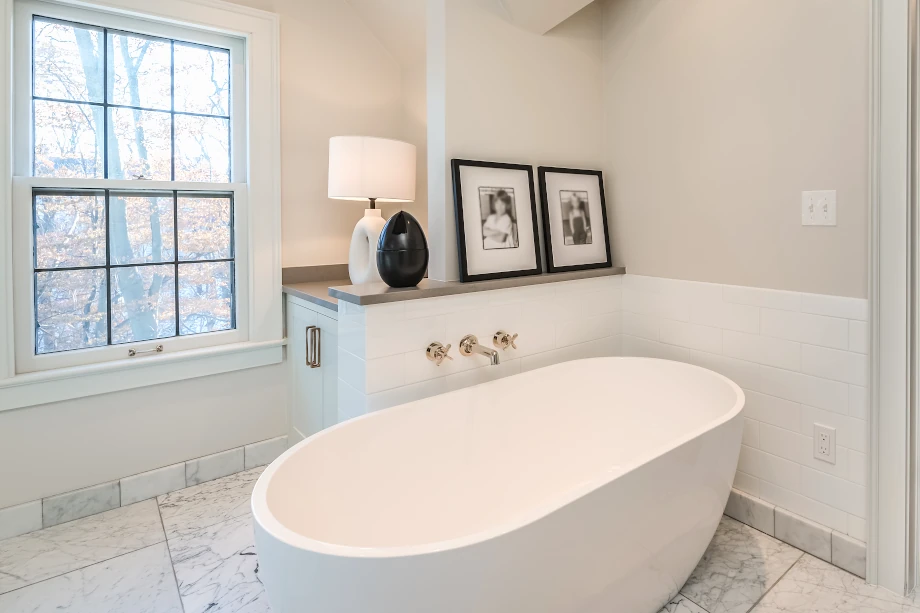Our guide to different types of bathtubs will help you make the best choice for your bathroom remodel.
In a busy family home, bathtubs must be versatile. They can be a luxurious, peaceful retreat from the world after a long day. Or a chaotic washing station for energetic kids or anxious dogs. Or anything in between.
Types of bathtubs
Alcove or Recessed Tub

Alcove or recessed tubs are the most common in U.S. homes and generally include a shower. Surrounded by walls on three sides, they are the most space efficient of all tubs.
They often fit into a nook built just for the tub. Or in smaller bathrooms, they may run the entire width of the room.
They’re cost-effective and available in many styles. The standard length for an alcove tub is 60 inches, but they can range from 53 to 72 inches.
Corner Bathtubs
Corner bathtubs generally emphasize relaxation and self-care over practicality. Triangular or rounded in shape, corner tubs are larger than alcove tubs and less often paired with a shower.
They are a great option for relaxation, and many can accommodate multiple users.
Downsides include higher cost, more water use, and a longer filling time.
Drop-in Tub

A drop-in tub is mounted into a pre-built deck that surrounds it.
This tub is often positioned in the bathroom similarly to the alcove or corner tubs. But you can customize the appearance of the deck to match the rest of your bathroom.
Additionally, the surfaces around the tub provide built-in storage space for bottles, soaps, and other accessories.
Undermount tub
A variation on the drop-in, the undermount bathtub is mounted beneath the deck that surrounds it, so there is no lip along the edge of the tub.
It’s like the difference between the top mount and undermount sinks we discussed in our guide to kitchen sinks.
The uninterrupted surface can create an elegant, spa-like appeal that is inviting, yet practical.
Freestanding Tub
Freestanding tubs can be placed anywhere in a bathroom, especially when installed with freestanding faucets. But many homeowners choose to mount the faucets on an adjoining wall.
With both modern and antique designs available, freestanding tubs are often the focal point of the room.
They’re the best choice for a deep soak.
Popular freestanding tub designs include single ended, single slipper, double ended (see featured image above), double slipper, clawfoot, pedestal/skirted, and Japanese soaking,
Walk-in Tub
People with limited motility or trouble balancing may choose a walk-in tub. A safe alternative to traditional step-over bathtubs, most feature built-in seats and grab bars for stability.
Walk-in tubs combine the convenience of easy access with the therapeutic advantage of full immersion for pain relief.
Walk-in tubs can be installed within the space of most existing bathtubs.
Because the door extends down to the bottom of the tub, users should be prepared to wait until the tub empties fully before exiting.
Jetted Tub

Any style of tub discussed so far can be available as a jetted tub. Like a hot tub, they have jets that massage and soothe sore muscles.
There are two types of jetted bathtubs: whirlpool and air bathtubs.
Whirlpool
The best-known style, whirlpool baths have jets that shoot streams of water, providing targeted hydro-massage for muscle pain and strain.
Air
Air jets shoot compressed air to create a bubbling sensation that is more relaxing than therapeutic.
Jetted tubs are more expensive and difficult to install, and they’re harder to clean. The pipes of a whirlpool tub should be flushed multiple times with powerful cleaners.
Each jet should be manually scrubbed with strong-bristle brushes. It’s important to choose the right cleaners to avoid damaging the whirlpool parts.
Common bathtub materials
Acrylic
Many bathtubs are made from layers of acrylic vacuum-formed over molded fiberglass sheets.
- At a modest price-point, acrylic is the most popular bathtub material for homeowners.
- It’s lightweight, easy to install, easy to clean and available in many shapes, styles, and colors.
- Modern acrylic finishes are less prone to scratching and discoloration.
- Acrylic can last up to 15 years when well-maintained.
Fiberglass
Fiberglass bathtubs are made of molded fiberglass sheets with a top layer of gel coat.
- Low-cost and are easily installed.
- Prone to scratches, cracks and fading but is also reparable.
Con
- Fiberglass can feel thin and can flex or crack under too much pressure.
Porcelain-enameled cast iron or steel
Metal-based tubs are coated with a thick layer of enamel.
- Porcelain enamel is extremely durable; tubs are resistant to chips, scratches and dents.
- Glossy finish can withstand most common household chemicals, making them easy to clean.
- Layer of cast iron or steel helps the tub retain heat better than acrylic or fiberglass bathtubs.
Con
- Cast iron is heavy, requiring extra floor support and professional installation.
Solid surface
Solid surface consists of a blend of minerals and synthetic resins that can be molded or poured to create virtually any shape or size tub.
- Creates seamless, one-piece surface that looks sleek and is easy to clean.
- Non-porous and hygienic, as well as mildew-resistant.
- Recyclable, making it an eco-friendly material choice.
Con
- More costly manufacturing process than other bathtub materials.
Copper
Copper bathtubs have a striking appearance that only enhances with time.
- Patina created through oxidation over time gives copper one-of-a-kind, multicolored finish.
- This “living finish” also helps heal surface scratches and scuffs.
- Clear lacquer seal can slow the patina development with regular wax coatings.
- Copper bathtubs are also durable, rust-proof, mildew-resistant and antibacterial.
- Like solid-surface bathtubs, copper is recyclable
- has the longest lifespan of all bathtub materials.
Cons
- Typically more expensive than other materials.
- Acids and abrasives can damage the surface.
Stone resin
Similar to solid-surface bathtubs, stone resin bathtubs are made from a blend of resin and crushed natural stone.
- Impervious to stains, discolorations, mildew, and bacteria.
- Scratches and cracks are rare but reparable.
- Of all the bathtub materials, only copper has longer lifespan.
- Unique, high-end appearance makes stone resin more expensive.
- Compared to cast stone – a stone bathtub that uses concrete in place of resin to create a more natural, carved appearance–stone resin tends to be more cost effective and easier to maintain.
Con
- Expensive.
Finding the Best Bathtub for Your Remodeling Project
When deciding whether a porcelain-enameled cast iron bathtub or acrylic bathtub is better for your bathroom, consider both your budget and the lifespan you expect from your tub.
Cast iron tubs require less maintenance and are a better long-term investment for your home. But acrylic tubs are less expensive initially and are reliable tubs if you plan to move or renovate your bathroom during their 10- to 15-year lifespan.
If you are still unsure about what type of bathtub is right for your bathroom remodeling project, feel free to contact us.
LaBonte Construction was voted Best of Milwaukee 2024 by Shepherd Express readers in Bathroom Remodeling, Home Remodeling, Kitchen Remodeling, and Basement/Rec Room Remodeling. Also, we were finalists in the Home Builder category.

